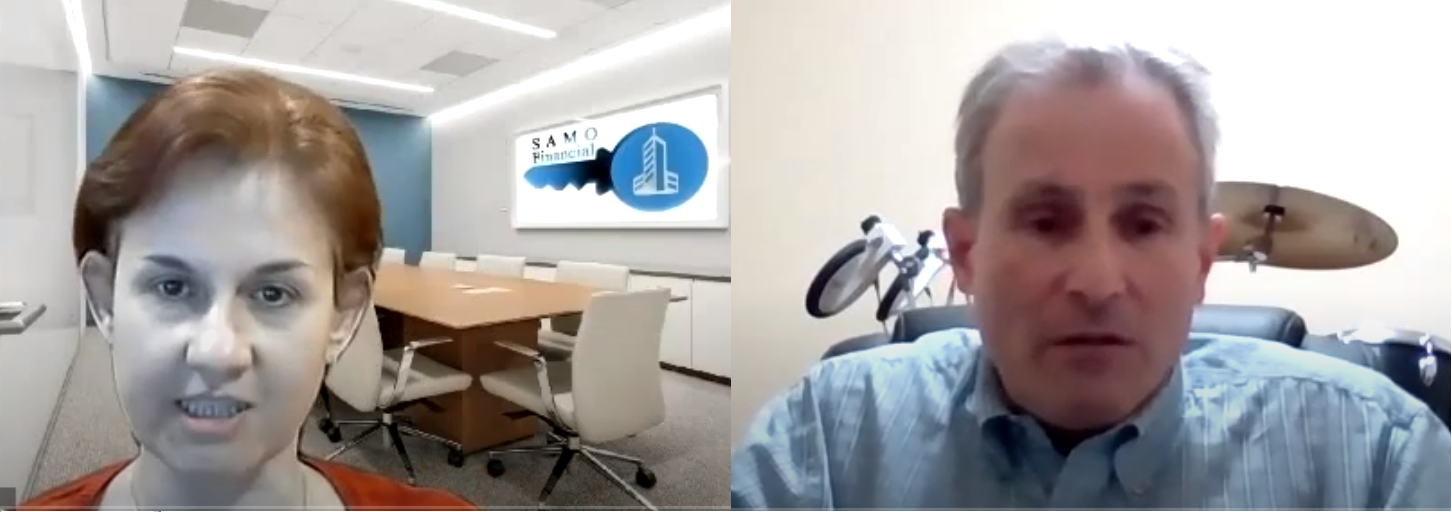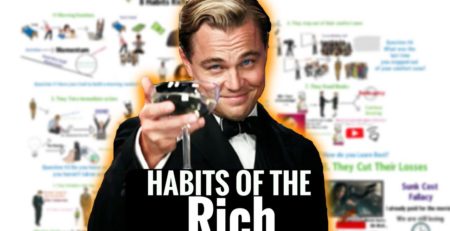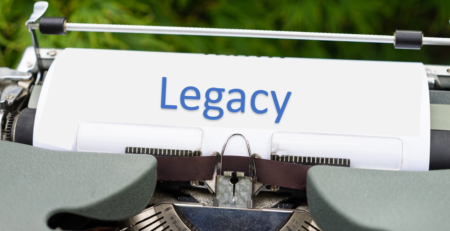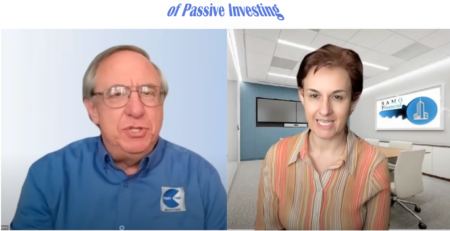How not to fall for a Ponzi scheme (investor interview)
How not to fall for a Ponzi scheme
(Interview with our investor, Mark Wolgin)
Alina Trigub
We have a great guest today, Mark Wolgin. Mark will share with us his story of what appeared to be at the end a Ponzi scheme. So, Mark, why don’t we start out with you sharing with our listeners a little bit about your background, your story, and how you got into real estate in the first place.
Mark Wolgin
Oh, sure. Thanks for having me. I am 60; I wonder how that compares with your other people who listen. I got into real estate in 1996, when I met some friends, and they were investing in single family homes, and they were looking at all the things that were benefits of which I’m sure all your listeners know – the appreciation, depreciation, leverage, and all that stuff. And I wound up getting involved: bought two houses, paid them off and then did 1031, and got some other houses. All this was remote.
And anyway, career wise I wound up in San Diego. This had been in about 2000. And I remember thinking San Diego was a nice place to live. And, by the way, I’m a doctor, and San Diego is not a place that pays a lot. So, I remember I wound up in a bookstore, and there was a book by David Finkel and Peter Conti “How to make money in real estate without tenants, toilets, or termites” or whatever. This is some “technique” thing. And so, I wound up through that going to real estate meetings. And what’s going to lead, I guess to the gist of this is I wound up meeting a guy who would be what you call a “sponsor” although this was my first entry into passive investing. And it turned out, I’ll detail more, but it turned out not to be great.
Alina Trigub
So, how did you meet the sponsor and how did the relationship develop? How long did it take? What did he share, and what kind of communications did he have with you?
Mark Wolgin
Well, I guess it’s really like being in a different world. So, my whole life I’m going to hospitals, seeing patients, trying not to cut the nerve, all this stuff that you do as a doctor, and to not get in trouble. But all the reasons that real estate made sense was gathering my interests. I went to a lot of these meetings and I’d meet plumbing contractors and finance people, and it just I was like a fish out of water.
When podcasts were getting bigger and, just as I left in 2005-2006 to come to my current job in Albany, Georgia, I wound up getting hooked up to the San Diego meeting. There was a guy there and he was talking about all the things that I’m sure your listeners know about: value-add, passive investing, where you buy a building. And he was working in C-Level apartments and, he went through all the calculations of having a rent amount that fits a certain amount, and then you increase the rents through improving. And it all makes sense. The only thing that obviously people who are less than honest don’t say, is that they’re less than honest. I don’t know if he started out that way, but the whole idea made sense.
I moved to a new job in 2006, in Albany, Georgia, and I was making more money, and I had something to do with it, and I needed something to do with it. So, I wound up, investing in one of his apartment deals. And, the first one, he said they had a hiccup, so they’re putting the money in another one. I thought, “Okay, fine,” I operate and this is what you do. I didn’t really think much of it, but deal number one comes in, and I’m making returns, and it’s just like he said. So, I think a big part of the dynamic is the relationship.
I mean, you could fill in the details about how someone would present an opportunity to invest, and the more the person makes sense, the more they answer your phone calls, the more they have answers for everything, and then you start seeing your money come back. It builds a relationship. So, I mean that that’s sort of what was the base of it.
Alina Trigub
Sure. So, let’s go back a little bit. So, you met him, while you were still in California. And at that time, you already had some real estate investing experience, not necessarily in syndications. Sounds like you were buying single family houses at the time using buy-and-hold strategy.
Mark Wolgin
It was buy-and-hold. And the attraction of it was that it was a certain return, and I didn’t have to do anything. I was familiar with the issues of leveraging and depreciation, trying to resell and then it’s illiquid, and cost of turnover and rehabbing places. Those weren’t foreign to me, but I actually didn’t meet him until later, but I heard about him on a podcast. What’s very common that it’s probably almost all of my sponsors that I’ve worked with, I’ve never shaken their hand. And it’s not a COVID thing. Not even bumped elbows. The whole thing is remote relationships, even the house that I bought all along the way, every property manager – I’ve never met one. So, that whole part made sense and the communications were fine, and everyone emails. Anyway, I just had confidence going forward that this is how business was done.
Alina Trigub
Sure. But going back to where you were. So, you were buying single family houses and they were managed by the property management companies. So, what triggered your decision to switch, or maybe add apartment syndication to your portfolio? Why did you decide to completely switch, or you just wanted to add something other than single families to your investments?
Mark Wolgin
It was more to add other things, probably a little greed. I mean, because you can’t really scale single family homes. You can dial in to a degree, I mean whatever the market will bear, right? You can kind of dial in the value, if you’re making $100,000 in operating income, and the building is $1Million, you increase it to $200,000 and figure out what the cap rate is. You do the calculation, and you can kind of leverage up the value. So, that was the attraction: just being a little more aggressive to get ahead financially.
Alina Trigub
Now, it makes total sense and that’s a typical progression for a lot of people that start with residential real estate, and then gradually switch to commercial in either an active or a passive role depending on their priorities and interests in life. So, it’s very natural.
So, this guy – you heard him on a podcast, and then he came to the meetup and you’ve seen him, and he actually had seen you in person at the meetup?
Mark Wolgin
I never met him until things were going bad, which is later in the story. But, actually it’s even how I met you. I heard you on a podcast, and I called you up then we have a conversation, right? That’s sort of how it went and, it made sense. And then you put a toe in the water, then you put your foot in the water, and then it’s a quicksand pool, and you’re on a podcast like this explaining how not to do it.
Alina Trigub
Exactly, and sharing your experience with others to make sure that other people don’t get into a similar situation, hopefully. And we’re grateful for you sharing your story, Mark!
So, help me to understand when you met this individual virtually. Did you do any kind of due diligence, or did you have a conversation with him or anyone who may be invested with him in the past?
Mark Wolgin
Well, I have the advantage of hindsight, and I did what I thought was due diligence at the time. I got some references and talked to three people, they all said, yeah, he’s a good guy. He’s a West Point graduate – verified. Fine. And a licensed mortgage broker in the state of California – verified. Okay, I didn’t know what else to do. I mean I certainly wasn’t oriented to, market conditions and choosing places he was working in San Diego, in a place where they buy 24-unit buildings. This is not a big deal.
And then the other thing was that I guess I didn’t really know the details of getting background checks on people. Like, before 911 you would never think of jet airplanes as a bomb. I just failed your imagination that people could become how he became.
And the other thing, which even makes me and my kindred doctors, great targets, is that we have a default to believe people. I mean, it’d be different if I was a police detective, and had to sift through everyone lying to me all the time. But when the person says, “My dog ate my hydrocodone,” I’m, “Alright, I’ll let it get by this time, but you can’t do this again.” And so, I’ve tended to believe people, and I kind of gave them the benefit of the doubt.
Alina Trigub
Sure, I hear your and I think that you’ve done enough due diligence because if he is a West Point grad, then West Point did the background check on him. I’m sure he wouldn’t have been able to go to that school in the first place if his background wasn’t clear. So, that speaks volumes. First the references: people that have worked with him in the past and they all gave positive feedback to you. So, that also is due diligence. So, you’ve done your part.
The first deal was going well, right? Was it a long term buy-and-hold or was it a shorter more-or-less a year or two?
Mark Wolgin
Well, the whole interaction with the guy was over about three years, three to four years. And what happened was, I would be getting returns so, he’s building credibility. And of course, I get my phone calls returned because I’m a good investor. And, each deal I considered an independent thing. So, say deal number one, it’s kind of doing okay. Then we get into it, and I want to invest more I go into deal number two. And, maybe I don’t remember which is which. But one might have had a hiccup – “distributions dropped off,” he said. And these were not great areas. These are places that probably you or I wouldn’t be that comfortable going to at night, but he was trying to build them up. He said that a gang member moved in and scared a lot of the residents. I mean that kind of explains having no distributions for a few months. But there’d be these hiccups. And I compartmentalized it, so if there was one that had a problem, and the other was still performing I would give him the benefit of the doubt.
Alina Trigub
Sure, and that’s totally possible. Especially if it’s not such a nice area. And there are potential hiccups. But he was still communicating with you during that three-year period, right? While you were investing, he was building his credibility.
Mark Wolgin
Yeah, and I don’t know how much of my losses – 100% are on him, not that I’m excusing his dastardly behavior, but in my spirit of trying to help, one of the buildings because it’s probably the same one with his gang thing was having cashflow problems. And he was getting behind on that property taxes, but he had a plan – he was going to get the rehab done. There was one unit he found that a guy had an extension cord he was not paying rent – he’d get the cops in there and clean it out. It just sort of made sense. And so, I even volunteered to loan more money, it just bristles to say it, to pay the taxes. And I would just take – I would have a loan against the building, and they would pay me back with an interest, and I’m sure he just was loving it.
But the thing is, I don’t know where along the line – because I’m going to jump ahead for a second – I don’t know where along the line, either if
…he was always a sociopath, or his house of cards started to crumble or what.
But just a spoiler a little bit – when we got to the lawsuit, there were 43 people that he milked out of over $8 million. And there were people that were Iraq war veterans, and a lady with cancer, and retired people who he told to put all their money with him, and even high school friends. So, at some point we were in the mediation meeting and this retired judge is saying, “Don’t expect to get what you want; everyone is this kind of way – and will come away unhappy.” And so, there’s 20 people in this room, and they all want blood.
The key thing, kind of to get to the spoiler again is, what would you do differently? I don’t know how he got to how he did, I mean I did whatever I could and probably the no-good-deed-goes-unpunished was part of the scenario of how I got more burned. I mean it was an expensive lesson.
So, anyway I sort of jumped ahead, maybe messed up your train of thought there.
Alina Trigub
No, that’s fine, and every little bit definitely helps.
Let’s go back to this three-year period. So, you’ve invested in two properties, and one is performing, the other one is having hiccups. So, what else is happening? Have you invested in another one with him, or multiple?
Mark Wolgin
There was a total of four. And I think, the number three was one that we wound up getting some money back because they sold some of the line between the street and the apartment, they sold it as an easement to the city. So, we got a little more money back, and those things just added up to that this might be a decent deal. This was 2011.
I didn’t really go back to refresh my brain on all the details, but I just remember at one point I just kind of shot up in bed one night, and I just thought, “He’s lying!” Everything fit into place: it was that one click that fit the puzzle together.
It actually happened around the time that there was another investor who somehow found me. That was the sort of beginning of the end because we started to… I had no reason to talk to other investors. I never even asked. So that when this guy found me, and we connected with some other ones that we wound up having to find lawyers.
I don’t know exactly what was that crystallizing thing that happened, but it just it was a sum of evasive answers that were happening.
One of the units I think in building number four, he said, “Well, this unit could not be rented, as it has a $14,000 cost plumbing problem.” And at some point, when we got with the other investors, we fired him as property manager because he was the operator and property manager, which is not that unusual. So, we got a new property manager, and the guy had a handyman run a snake down the toilet and for $50, he made it a rentable unit. So, it just opened up Pandora’s box of the imagination; what else is he stealing?
Alina Trigub
So, how did you get him removed as a property manager if he is the GP in the syndication? He is the only one, unless he has partners – the other GP partners; he is the only one who has the right to make those decisions. So, was an attorney involved at that time?
Mark Wolgin
I don’t remember getting attorneys involved. I think it was the investors just said, “We own more of this, we’re firing you, we’re getting someone else.” And maybe he knew that jig was up in a way he didn’t really argue. So, it wasn’t a big fight; he just wanted us to be happy. I think he was trying to assuage the coming storm.
Alina Trigub
Sure. Going back to the red flags. Was the first red flag that vision that you had that he was lying, or did you see any other smaller red flags prior to that?
Mark Wolgin
Well, I think, in hindsight, the things about the gang member. I mean, that should have been cleaned up in a month; it shouldn’t have taken four to five months. Just things like that. You get the cops in there, hire some guy named Bruno. Whatever it takes. Can you just go in and get it done? That’s what his job is. And I think, I was busy doing what I was doing. I didn’t know anyone else who was in this investment.
And I guess I should have more details – I don’t, in terms of other red flags. But one thing that came up was when we started connecting with investors, with each other – one guy drove by, and the place was terrible. I mean it was ingrown, unkempt weeds in the front, and it clearly wasn’t a priority for the guy.
Also, in hindsight, I wound up to be the one who paid for all the legal fees, and he would be in a video deposition, basically saying, “Any investor money I consider mine,” meaning his. He had a nice office in an expensive building in San Diego, and he bought cars, and went on trips to Las Vegas. So, somewhere along the line he went from somebody who went through the honor roll at West Point to just not a normal person.
Alina Trigub
It’s incredible. He was in an honor roll at West Point?
Mark Wolgin
Oh no, I mean, like you were mentioning, you have to have a certain degree of honor, to get to West Point.
Alina Trigub
I mean, it’s really hard to get into that school in the first place So, that’s definitely incredible.
And so, from that point on, when you realized that he was lying, that’s when another investor connected with you, and he and you got more investors talking to each other. You started kind of trying to see what really was going on with the property or multiple properties, and how you could change what’s been going on. Is that correct?
Mark Wolgin
Yeah, I don’t remember exactly the sequence of events, but first it was investors talking to each other, then the pieces not fitting together, and then the drive-by that the place looks terrible. Then we’re talking to lawyers, and at one point, I mean it was fairly simple, he was, “Well listen, I have E&O insurance, so have your lawyer call my insurance company – let’s get this settled.” He was kind of trying to help. But it’s pretty crappy when he’s admitting that “I’ve defrauded all of you, people”, or something like that. And really that’s not what E&O insurance is for, where he can say, “I’m going to go do a crime, and let my insurance pay for it.” And I can elaborate on that more but that was crazy to have someone thinking that way.
Alina Trigub
So, in hindsight, I think you mentioned a couple of points that are really good, and could serve as a red flag – if the operator is mentioning the property is not performing, and the property maybe, is not in the best of the neighborhoods, but maybe cleaning it up takes much longer than a couple of months. And that potentially is a red flag, and is something to look into. Why is it taking longer than two or three months to clean it up? Where is the police on this? Where is in the property management? Where is the operator, themselves? Are they doing what they’re supposed to do to clean it up? So, those things, definitely can serve as indicators that there is potentially something fishy that needs to be checked out.
I’m glad that you mentioned that one of the investors took it upon himself, and drove by and saw how bad of the condition the property was. So, that was probably the additional trigger that made everyone realize that the legal help was needed in this case, and you needed to bring this into the court of law, and take this on.
Mark Wolgin
Well, I live 2,500 miles away, so it was not really conducive for me. But I wound up having an orthopedic meeting in San Diego, and I went by and met him and it was very strange. I mean he was chain smoking and having a nervous laughter. And he hadn’t really totally confessed at that point, but it was very awkward. When it actually came to the legal part – several lessons. This doesn’t tell people who are trying to avoid this situation. I’m saying if you get down the road, this is a reason not to go down this road is that the lawyers really screw their clients.
I mean I called this guy I was in a corporate situation – I said, “Give me the name of your Bulldogiest Bulldog teeth-in-their-leg lawyer.” And he gave me the name of this guy who was a Bulldog at billing. I would see on my bill, a charge for 10 minutes for a phone call, and I made a note on that day he called me to tell me he can’t talk to me, and then billed me for it. So, we had to go to New York at one point for a deposition because the insurance company was in New York. And the guy had the audacity to say, “Oh, come by the hotel – I’ll buy you breakfast.” You will buy me breakfast? I’m buying us both breakfast! And he’s staying at Hampton Inn. I stayed in the Airbnb that I couldn’t even stand up in – I would hit my head on the ceiling to just try and save a few bucks. So, that was one thing about them.
But we wound up getting caught in a situation where he had this Errors and Omissions insurance, and it was called a Wasting Policy. So, every dollar they spent on defense was that much less than would be available for some settlement. And we also had a criminal complaint. And I don’t know if it’s good or bad to do that, but I kind of thought, “A – he is a criminal, and B – it’d be some sort of leverage.” This was in 2008-2009 in San Diego, and there were so many frauds that the total loss of all the 43 people was eight million bucks – and that was not enough for the DA to take it seriously. That was too low.
So, the civil judge didn’t want to do anything until the criminal case resolved, and the criminal judge – the DA has never acted on it. So, we’re in this limbo.
And the insurance company, I guess they look at what they think their cost of defense is – take a haircut off that. So, bottom line I got back, 55% of my legal fees and zero of my investment. So, it was an expensive lesson. But, as one of my mentors said, “At least you have your health,” which sounds like cold comfort, but it’s true. I mean, a small tangent here. I got a guy a surgeon I know who’s done very well. He invented some instruments and he has a lot of money, and he was looking at one point, at what kind of yacht to buy and it was $16 million. But he doesn’t talk to his daughter. So, which would you rather have?
Alina Trigub
I hear you and my big thing, having health is a lot more beneficial and a lot more relevant, especially nowadays. We’re still in a state where the pandemic events affected the whole world. So, I think, health is something that you can never buy back with any sort of money. So, absolutely having that health and staying healthy, is the highest and most important priority. And it was back then in 2009 and still is now in 2020. I completely agree with you.
And it’s a shame that it sounds like the guy, more or less, was less than punished because neither one of the courts wanted to take action. And did he end up not been punished for what he had done?
Mark Wolgin
Oh, I think it’s just like OJ: if you can kill your ex-wife and a male companion and get away with it – you will. I mean, if you can commit crimes and be okay with it. It’s a different kind of person, most people. If you’re in line at the supermarket; the lady in front of you drops $5 and doesn’t see it, most people don’t say, “Cool, I get $5!” No, they say, “Excuse me, ma’am. You dropped this.” Right? Because personally, that $5 would burn a hole in my pocket. What difference does it make? It’s probably right more money to her that to me. Not that I am Mr. Moneybags, but it’s still, it’s just not the right thing to do. And there’s other people that are okay with doing those things.
And so, sort of come around to the topic of this talk, or this conversation. I’ve tried to struggle with – what are the lessons? Had I to do it over again, what are the red flags, what are the things that I should have done or could do?
And I think, maybe have a shorter fuse to follow up with things that don’t make sense, probably do a background check, I certainly know more about choosing areas and what kind of properties want to invest in, which are all in other talks. But I think a large part of it is subjective, and it’s go-with-your-gut thing.
And, there’s a lot of sponsors that say, “Work with people you know, like and trust.” Know is a part of trust – who cares if they do a good job – it’s trust! I mean, because you could do all your due diligence, that’s all on the front end. You write the check: the dog is off the leash. I mean you got no control. And if you look at the PPMs. They’re all written so that the general partners have all the control, which is kind of how it should be. I mean if they had to get a vote should we have egg or cream, as the color for our new apartment rehabs, they never get anything done.
By the same token by the letter of those PPMs – the Memorandums – they literally could take their family to Australia and charge the building That’s why, if you go to people, who have a lot of reputation; they live and die by their reputation. I mean, there was one sponsor that I’m with, and I got an email, “Today, we have a new opportunity.” And I kind of thought about it – I wasn’t super excited, and then three to six hours later, fully subscribed, right? So, it’s if you don’t jump on it, it’s done. And I have a lot of confidence in that guy. I’ve got several buildings with him…or not buildings, but I’m teeny owner of several things. So, to me some things – you kind of have to jump on.
Alina Trigub
There’s always a next opportunity and, I’m sure there will be another opportunity with this great sponsor or another one that you could jump on. If you didn’t feel that this was the right time or the right opportunity, then I absolutely agree with you, you shouldn’t jump on it just because someone else has decided to jump ahead of you. That’s totally fine.
Mark Wolgin
But that’s the currency for the sponsors. If they were putting people in deals and they were Ponzi schemes, they would have their business dry up, aside from having other legal issues.
Alina Trigub
I completely agree, and I bet if you met this sponsor you just mentioned in person, you wouldn’t have had the same impression as you’ve had of the other guy you invested with initially. And you even said that, I don’t remember the exact words, you said that it didn’t sound like he looked healthy at that time, he was smoking, he was not giving you clear responses. He may have really been smoking something at the time when you met him in person.
Mark Wolgin
Yeah, who knows. I mean, it definitely is, you’re not the only person to say that. And actually, I shouldn’t be proud of it, but it’s not my first time being in this. When I was in college – in residency, there was a guy that I met through some very rich people I know. And he was at their party. And at that time, I think this was, I don’t know, in the 80s some time, and interest rates at the banks were 3% or 4% and he was offering 8%. And I thought, “Oh, that’s good!” And so, his whole thing was, he was accumulating money that he would get to other investors who could get 9% for something and he got 1%. It all sounded very reasonable, and I just gave him the credibility because he was at my friend’s party. And these guys are rich, they’re the people I know. And, it turned out that I thought everything was fine and then I get a letter from a lawyer, “Do you know this guy? He’s a fraud.” And we wound up getting back almost all of it from their insurance company because he used the office of a major broker – it was Deloitte or someone – some famous broker. And I did get recovered from that, but I guess the waves of amnesia go on – “Okay, well, I stepped over that pile of poop,” and so, you just get on with your life, go back to believing people.
Alina Trigub
For sure.
Another important point to keep in mind, and I think you kind of mentioned that along the lines of, this is investment planning. You are not investing with your day-to-day funds; this is not even your rainy-day funds. This is money that is specifically allocated for investing. And when you are investing, whatever it is: Wall Street, real estate, gold, mining rights, everything can be completely lost. This is not FDIC-insured, and that’s what I keep reminding my investors and everyone else that you have to remember that this is not something that’s going to be guaranteed for you to receive back.
Obviously, any reliable and honest sponsor would want to be able to pay, not only the principal but also, the interest that they projected based on their underwriting. But if it’s a scammer, like the guy you ran into, then he’s going to steal it, and say with a straight face, “I’m sorry,” or maybe not even say, “I’m sorry”. But the point is, if you’re investing this money, you have to think that there is a possibility that all of it can be lost. And the PPM has an extensive section about the fact that the money can be lost. And a lot of people just ignore reading Private Placement Memorandums because it’s too lengthy, and they don’t want to bother, but it specifically says in black and white that you may lose all your investment money. So, be prepared for that and that’s how every legal document is structured.
Mark Wolgin
They also run that FOMO – Fear Of Missing Out, right? So, you talk to these guys and you feel here’s a chance to double my money in five years. To do that in the stock market, the rule of 72, what would that be 10% or something, 12? I don’t know, whatever it is, and that’s hard to get in just equities especially now. They kind of judge companies by the Price Equity or a PE ratio. And normally it’s been about 15 now it’s about 35. So, I mean, the stock prices have been bid way up: people are willing to pay a lot more for stocks. I think it’s going to fall.
So, today if you had to find where to put some money, and you thought it was with that thing I missed out on today, which – there’ll be others – but if it was 6% or 7% Cash On Cash, and at the end of five years you get back 1.9 equity multiple of what you put in, that’s pretty good if it happens. Because that’s the whole thing, that’s the risk – if it happens, right? Who knows if they have a gang member move in?
Alina Trigub
Exactly, that’s true! Well, Mark, this has been very, very helpful. Any parting words for our audience?
Mark Wolgin
Don’t do it! Oh, sorry – no, I think a lot of it is luck. When I wound up talking to about 20 or 22 of those 43 investors and a lot of it was about what should we have done differently – and it’s the same thing. I thought of that example of being in a restaurant if a terrorist decides to blow it up; I mean what could you possibly have done? The people on flights that go down – that’s just the way it goes. Some people are going to win the lottery, and some people will have that experience. So, I think what I’ve taken away is: diversify.
Actually, the guy that I almost invested with today. He makes the point to find a sponsor you really like, and invest with him a lot. And, with all due respect because of what I’ve been through I kind of have a different opinion. Because if that one blows up, I got other things. You got dry powder in different places. So, I’m a big fan of that.
So, it’s just to be aware that things can go bad. A friend of mine, who bought into this business. It was where you make pineapples covered with chocolate into flower arrangements. And I just thought, “That’s cute for a minute.” Right? I mean, what are you going to do with that? People try to not have a lot of sugar, so it’s not really a sustainable business. But they were so hot on it. So, I wish you well, right? And so, everyone’s going to go their own way.
I just think most people are not interested in advice unless they’re asking for it. So, I guess people, who would listen to this might be looking for some wisdom. But just to keep in mind things can go bad, and if they don’t, then it’s a win!
Alina Trigub
Absolutely! And to your point, invest in N-95, most likely they will be needed for some time longer, probably.
Mark Wolgin
Yeah, there you go.
Alina Trigub
Who knows how long we’re going to need the masks?
Mark, this has been really great, and very helpful. I truly appreciate your time and your feedback. And I’m sure our audience will appreciate it a lot. So, thank you so much, and until next time!
Have you thought about passively building your wealth via real estate investing?
Let’s talk











